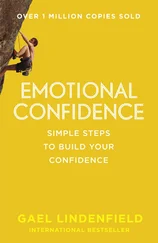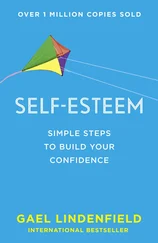At first you may find yourself filling up the AGAINST section, but as your basic mood and attitudes become more positive, the FOR section should start filling up.
Do the following exercise to give yourself some practice and then use it to help you to structure your thinking as formally as you can for a few months. After some time you may find yourself automatically thinking differently and you will not always need to go through this process although I still find it an invaluable support when I am having to make major decisions.
Think of a decision which you are trying to make at the present or one which you have recently made. Divide a sheet of paper into five sections as I have done below (or in any other creative way you can imagine!) and use the above strategy to explore the different issues and relevant facts and feelings. I have used the example of a decision to move house.
Decision: Whether or not to take up the offer of a new job which would mean a major family move to the other end of the country.
| FOR |
AGAINST |
| Better career prospectsNearer to LondonGreater opportunities forchildrenMore money in the longtermNearer the seaMeeting new people |
Leaving much loved homeLosing contactsInitial costDisruption of schoolingCountryside not as goodOver-populated area |
| CHOICE |
EMOTION |
| No changeContinue looking for jobsMove in a couple of yearsCommuting |
ExcitementSadnessNostalgiaAnxiety |
FACTS
State of industry
Recession
Initial investment: – £8,000 p.a. for two years approx.
How to expand your thinking powers
There are hazards in everything one does but there are greater hazards in doing nothing .
Shirley Williams
Are you using your brain to its full capacity? The answer is most definitely that you are not – and neither am I! Recent research has revealed that most people use under one per cent of their brain. This organ has quite staggering potential. So don’t waste energy by looking over your shoulder and enviously admiring ‘his incredible logic’, ‘her amazing memory’, ‘her brilliant imagination’, ‘his quick thinking’, and so on – vow to start digging for your own latent thinking power!

Research has proved that the average man’s overall IQ score is indistinguishable from that of the average woman. This may seem like cold comfort because the reality is that, although we have the innate potential to be on an intellectual par with men, very many women still do not have comparable thinking skills .
In the man’s world that we were born into and reared in, women have indeed lagged intellectually behind men because we have lacked the opportunity, motivation and inclination to develop and maintain our brains in top working order. Many of us were not encouraged to pursue higher forms of education, even though no one disputed the fact that we were as, or even more, able than the males around us. How many brain cells do you need to look sexy, wash nappies and bake bread? Until very recently it didn’t make economic sense for the patriarchal society to educate us! Perhaps many of you, like myself, have experienced direct discrimination within the education system or from your parents. It may help if I tell some of my own story.
When I was 15 years old and in the middle of my ‘O’ level course, my family found themselves under severe economic strain. All four children were at private day schools to which my father had sent us two years earlier in an attempt to give us the best education he could possibly afford. I loved my school and was thriving both academically and socially. The liberal and encouraging atmosphere was helping to heal the wounds of a childhood mostly spent in repressive authoritarian children’s homes. I was heartbroken when I was told that the family’s economic difficulties meant that my sister and myself would have to leave our schools and join the state system. The pain of leaving my friends and having to attend a school which I knew would give me an inferior education was perhaps soothed by my sprouting social conscience, but I know the ignominy of having my educational interests placed behind those of my brothers damaged my self-esteem and directly contributed to my under-achievement at school. For years I put people with degrees (and clever people such as writers!) on giant pedestals. It was not until I reached my mid-thirties that I began to have a glimmer of my own thinking potential. I dread to think of the number of cells that must have died of starvation in my brain! The fact that I have heard many similar ‘hard-luck’ stories from women throughout my life has not assuaged the hurt, but it does fuel my determination to help women take positive steps to recoup their educational losses.
Of course the situation is now changing fast and my daughters are living in a very different educational world, but I know that many women are still hampered, not just by lack of opportunity but by deep wounds to their intellectual self-esteem and the general negative images of ‘blue stockings’ and girls in glasses rooted deep in our collective unconscious. We certainly have a right to be angry about such blocks and handicaps but it would be naïve to think that having a good shout about the injustice will give us adult women enough of the opportunities we need and deserve, even if it may help our daughters.
Your mind is not a sieve – it is a brilliant computer with a vast capacity for storage.
There is considerable evidence to support the suggestion that our brains do retain far more information than is generally thought perhaps even all of it .
Tony Buzan
So you must already have a mountain of information which you can usefully draw on – all you need to do is improve your ability to recall it. This can be done by a regular programme of exercises or making sure that you give yourself plenty of opportunity to practise your recall skills. Your memory was probably functioning much better when you were at school, mainly because it had so much exercise!
Here are just a few simple ideas:
Keep a daily diary.
Learn a language.
Learn some poems or quotes off by heart.
Psychologists have also shown that we can also improve our ability to retain information by:
– keeping our study periods short
– constantly reviewing what we have learned
– repeating information, such as a name, several times as soon as we hear it
– using mnemonic techniques which help us make links
– using highlighting colours
– using symbols and drawings to reinforce ideas
– asking others to test us.
Improving your ability to look and listen
Highly tuned observation and listening skills are essential to clear rational thinking. Our eyes and ears are incredibly adept at selecting out information according to the mood we are in – if we ‘get out of the wrong side of the bed’ we don’t even look for the blue sky, or if we’ve been told to expect a boring speech, we’ll sleep through the juicy bits!
Here are some ways in which you can take better control of these senses and encourage them to give you beneficial information:
– Practise your concentration by spending five minutes a day selecting and focusing on certain sounds such as bird song or a ticking clock, and consciously switching off other distracting sounds.
Читать дальше













